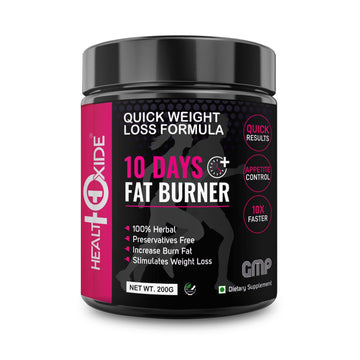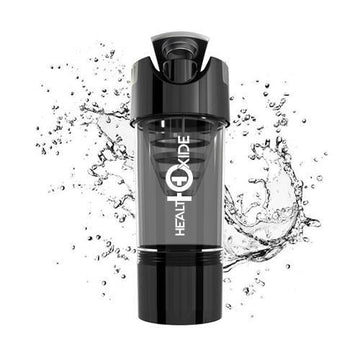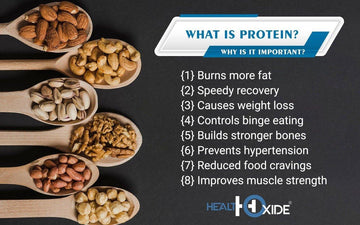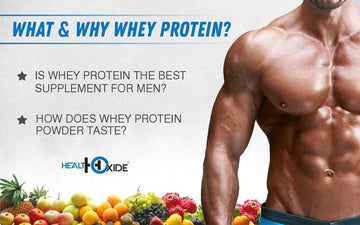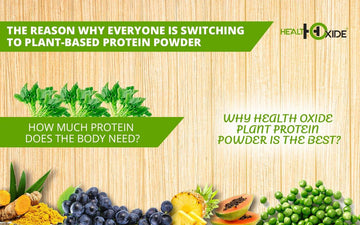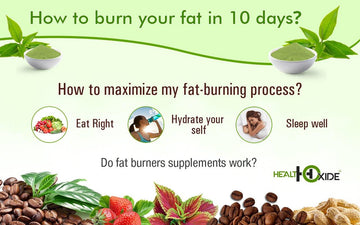Protein is one of the essential nutrients required by our body. The need for protein intake is not restricted to bodybuilders and athletes only, as it benefits everyone. One must understand that Protein is a need of the human body for its normal & efficient functioning. That doesn't indicate that you must drink Protein shakes every day. Generally balanced and a healthy diet comprising valuable nutrients provides the required Protein intake required by the body. The composition of this balanced diet requires changes as we age.
WHAT IS PROTEIN?
The three primary macronutrients required by the body are carbohydrates, fat, and Protein. Our body depends on these macronutrients to provide us the energy we need. Proteins are made up of amino acids that are found in the blood cells. Most of the amino acids are made naturally. Still, some essential amino acids can only be provided by a proper diet.
WHY DOES THE BODY NEED PROTEIN?
A human requires all nine essential amino acids for body fitness, building strong bones, body tissues, etc. The protein present in a cell's molecules plays a vital role in the immunity response of a body, the metabolism, repairing of blood cells, and much more.
Visit our proteins section on the webstore and check out our range of protein supplements useful for men, women, and children. We have a vast variety ranging from whey protein, milk protein, etc. that suit everyone's needs. For example - My First Protein with whey, casein & pea, Chocolate. A blend of four high-quality proteins My First provides Protein in a sustained release process to maintain proper muscle health. And it's a healthy protein alternative too as it contains No Added Sugar. For those with gluten allergies, you will be happy to know this product is 100% Gluten-free.
THE IMPORTANCE OF PROTEIN IN THE DIET
Numerous researchers have concluded that the Protein in the diet helps lose weight and improves the human body's overall health.
1. Controls binge eating
Protein is the most filling macronutrient in the body. A high protein diet keeps you fuller longer, even with less quantity of food. A protein diet reduces the production of ghrelin, also known as the hunger hormone. It improves the production of peptide YY, which keeps you full.
If you are working on reducing your body fat, you can easily - replace the carbs with healthy protein food. Reduce the rice and bread serving and add some extra slices of meat, eggs, tofu, or fish.
2. Improves muscle strength
Protein builds muscles. It helps in CrossFit and strength training.
Those who train for musclebuilding are advised to follow a protein diet by their trainers to improve the muscle mass.
It is beneficial to maintain a high protein intake when working on weight loss to avoid muscle loss.
3. Reduced food cravings
Hunger and food cravings are two separate emotions. The latter is more of a brain satisfying feeling than your body requiring the nutrients. It is onerous to control cravings, especially the midnight cravings, while watching a movie or catching up with friends. The best way to manage this is by consuming a high protein meal.
A high protein breakfast, lunch or dinner can reduce food cravings and midnight binging.
4. Builds stronger bones
There is a lot of misinformation that animal protein reduces bone strength. It is a myth. It is based on the theory that it creates more acid in the body, causing calcium to drain from bones to balance it.
However, the truth is those who eat Protein have a better bone mass and reduced risk of fractures and osteoarthritis. It is said that animal protein is beneficial for bone health.
Women are at risk for osteoarthritis once they reach menopause. A High protein diet can arrest that from happening.
5. Burns more fat
A high protein diet can burn fat for a short period. The body utilizes the nutrients in the food by burning the calories to digest.
A high protein diet causes a thermic effect of food (TEF), meaning the body burns down the calories while processing the food. The human body burns more energy while consuming Protein if compared to carbohydrates or fat.
6. Prevents hypertension
Heart attacks have become very common these days owing to our modern lifestyle. One of the leading causes of this is high blood pressure. Hypertension is a slow killer. If not controlled, it can lead to severe health ailments associated with the heart and kidney.
It is said that a diet rich in Protein reduces the insulin levels of the body naturally, lowering the blood pressure. Follow a high protein diet to reduce the risk of cardiovascular disease.
7. Causes weight loss
Several people who have followed a strict protein diet believe that it has helped them lose weight. The high protein diet boosts the body's metabolism as it burns more calories, reducing craving, which initiates a considerable amount of weight loss.
If you want to restrict calories, increasing your protein intake and reducing carbs and fats will be an ideal way to begin with. To keep away from gaining excess weight and maintaining the weight, increase of protein intake.
8. Speedy recovery
Protein helps in the speedy recovery of the body after an injury. The vital building blocks of tissues and organs are by Protein, which helps the body bounce back sooner after an injury.
HOW MUCH PROTEIN IS REQUIRED BY THE BODY?
The energy provided by carbohydrates and Protein is similar, but the body doesn't store proteins the way it stores carbohydrates. A lot of factors play a role in deciding how much Protein is required by the body daily.
The amount of Protein depends upon age, sex, BMI, and existing health conditions. The Dietary Reference Index suggests 0.8 gm of protein per kg. Multiply the current weight in kgs to get a rough estimate of the daily protein intake.
Conclusion
Suppose you are looking at boosting your protein intake for fitness. In that case, you can look at products from our portfolio like Health Oxide Whey Protein Isolate. Animals and plants are excellent sources of protein. Meat, eggs, milk, cheese, fish, yogurt, soybean, tofu are all sources of Protein that have all the nine essential amino acids required by the body. Remember to eat a variety of food, even if you are focused on protein supplement intake. Although Protein is an essential nutrient, several other nutrients play a vital role in keeping our body fit and in good health.
Also check this.. Best 3 Types of Proteins And Their Functions

